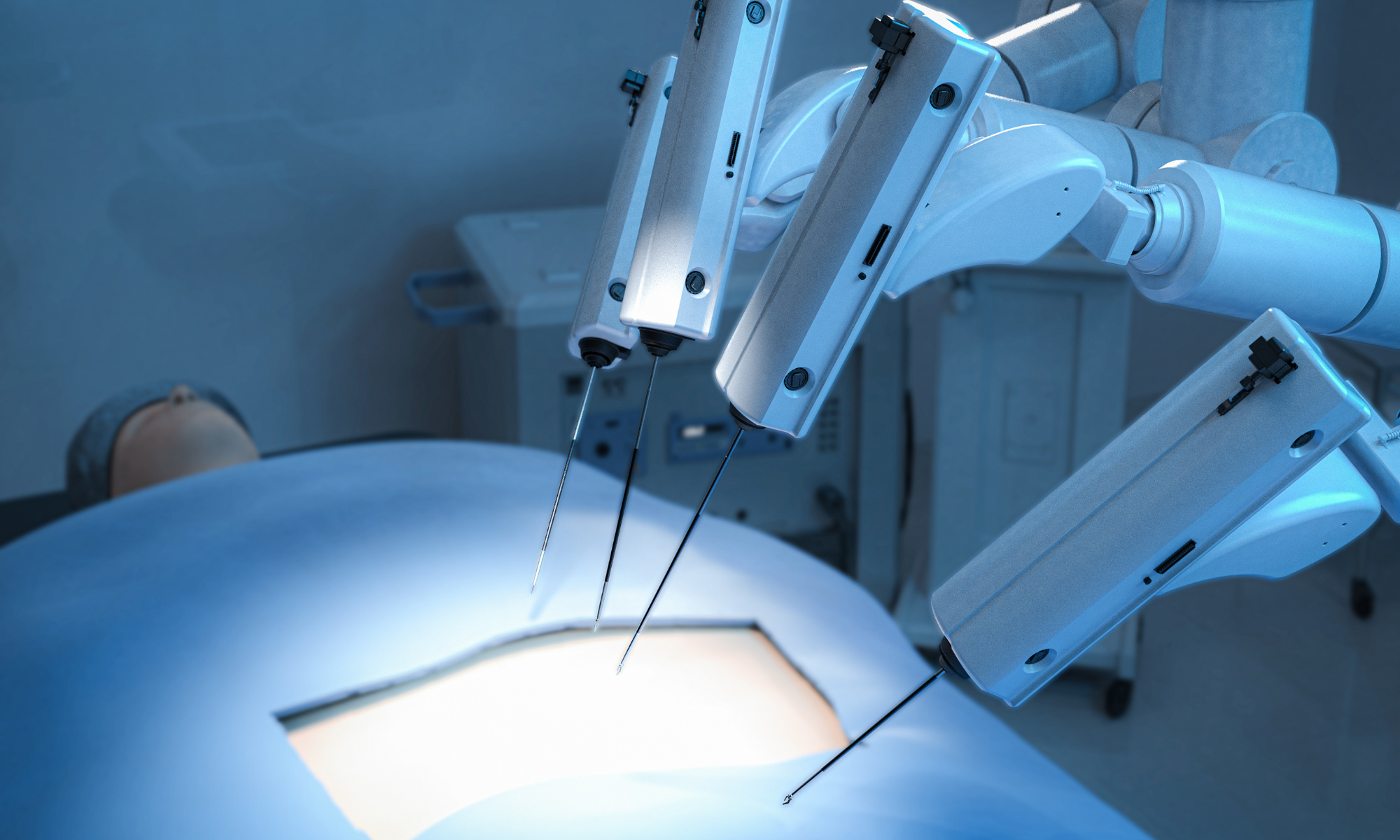Robotics in MedTech: Precision, Safety, and Clinical Impact

 Robotics as a Driver of Healthcare Innovation
Robotics as a Driver of Healthcare Innovation
Robotics is no longer confined to industrial settings or research labs. In healthcare, robotic technologies are transforming the way clinicians operate, patients recover, and laboratories process data. From precision-guided surgery to assistive technologies and automated diagnostics, robotics has become a cornerstone of modern medical device innovation.
For executives at medical device companies, robotics represents both opportunity and complexity. The opportunity lies in enabling safer, faster, and more consistent outcomes for patients and providers. The complexity lies in the engineering: robotics requires seamless integration of mechanics, electronics, control systems, software, and usability — all in compliance with strict medical standards.
At Boston Engineering, our Robotics Center of Excellence (COE) specializes in developing robotic systems that meet these demands. More importantly, we integrate robotics into the full product development lifecycle — from concept through manufacturing scale-up — so that innovation doesn’t stall in the lab but succeeds in the clinic and marketplace.
-1.png?width=760&height=95&name=Untitled%20design%20(7)-1.png) The focus and discipline of DFX is a powerful tool if used as part of a broader strategic approach to developing product/process differentiation, and a sustainable advantage against competition. Involve Design for X in Strategy. Once your team has determined the focus of your strategy, place the focus of design on developing competitive advantage.
The focus and discipline of DFX is a powerful tool if used as part of a broader strategic approach to developing product/process differentiation, and a sustainable advantage against competition. Involve Design for X in Strategy. Once your team has determined the focus of your strategy, place the focus of design on developing competitive advantage.
At Boston Engineering, DFX is a core part of creating values during our product development process. We focus on several key DFX areas that align with our expertise:
- Design for Manufacturability (DFM)
- Design for Assembly (DFA)
- Design for Cost (DFC)
- Design for Testability (DFT)
- Design for Reliability (DFR)
- Design for Serviceability/Maintainability (DFS)
- Design for Usability (DFU)
- Design for Modularity (DFMo)
Learn more about Design for X (DFX) at Boston engineering: Boston Engineering Design for X
(continued from above)
![]()

Case Example 1: Assistive Robotics for Greater Independence
A healthcare innovator sought to create an assistive robotic device that would restore independence for patients with severe mobility impairments. The goal was not just technical performance, but a device that was safe, intuitive, and manufacturable.
Boston Engineering delivered by:
- Designing precision robotic mechanisms that balanced strength with smooth, safe motion.
- Developing control systems with real-time feedback to ensure consistent and adaptive performance.
- Creating a user interface informed by human factors engineering, enabling patients to interact with the device confidently.
- Applying Design for Manufacturability principles to prepare the device for real-world production.
Outcome: The result was a device that significantly improved patient independence while maintaining the safety and usability standards required for clinical adoption.
 Case Example 2: Surgical Navigation System with Robotic Precision
Case Example 2: Surgical Navigation System with Robotic Precision
.png?width=338&height=242&name=Surgical%20Robotics%20(4).png) Another client required a surgical navigation platform that would allow clinicians to perform complex procedures with higher accuracy. While the technology had strong potential, clinician feedback revealed that the user interface was unintuitive and integration with clinical workflow was lacking.
Another client required a surgical navigation platform that would allow clinicians to perform complex procedures with higher accuracy. While the technology had strong potential, clinician feedback revealed that the user interface was unintuitive and integration with clinical workflow was lacking.
Boston Engineering addressed the challenge by:
- Using virtual reality simulations to test clinician interaction with the device before physical prototypes were built.
- Refining the robotic system’s interface to ensure seamless integration into surgical workflows.
- Applying control systems expertise to enhance precision and repeatability.
- Building documentation and traceability to streamline the regulatory path.
Outcome: Usability improved significantly, clinician adoption accelerated, and the platform advanced toward market with confidence in both safety and workflow compatibility.

AL & ML in Health Care - The Medical Workplace Multiplier
 In this new Whitepaper, learn how AI and ML can enhance the medical workforce’s abilities and improve patient outcomes.
In this new Whitepaper, learn how AI and ML can enhance the medical workforce’s abilities and improve patient outcomes.
While some view AI as a potential job replacement threat, the reality is that these advanced capabilities are better positioned as “workforce multipliers” that will amplify the abilities of doctors, nurses, technicians and other medical professionals.
Download your Free Copy Today!
Artificial intelligence and machine learning are emerging technologies that have immense potential to reshape healthcare delivery and medical practice.
 Case Example 3: Robotic Automation in Diagnostics
Case Example 3: Robotic Automation in Diagnostics
In diagnostics, speed and repeatability are critical. A client sought to automate laboratory processes that were traditionally manual, time-consuming, and prone to variability. Robotic automation offered a path to greater efficiency and accuracy.
Boston Engineering contributed by:
- Designing robotic handling systems capable of precise, repeatable sample manipulation.
- Integrating sensors and actuators to enable error detection and correction in real time.
- Applying our Digital Solutions COE to simulate performance and optimize workflows before building physical systems.
- Structuring the design for scalability, ensuring the system could expand to handle higher sample volumes as demand increased.
Outcome: Laboratory throughput was significantly improved, variability was reduced, and the system provided a scalable foundation for future diagnostic applications.

 The Common Thread: Robotics + Complete Product Development
The Common Thread: Robotics + Complete Product Development
Across assistive robotics, surgical navigation, and diagnostic automation, the common thread is clear: robotics alone isn’t enough. Success comes from integrating robotics into a full product development framework that includes:
- Systems engineering discipline to unify hardware, software, electronics, and usability.
- Project management expertise to keep programs on track, on budget, and aligned with regulatory requirements.
- Centers of Excellence collaboration (Robotics, Control Systems, Embedded Systems, Digital Solutions, Design for X) to ensure every technical detail supports the larger product vision.
- Design for X foresight so devices are manufacturable, scalable, and reliable in real-world conditions.
This holistic approach is what enables Boston Engineering to take devices from concept → clinic → commercialization.
Trusted Partner in Robotics Innovation
For executives at medium-to-large medical companies, robotics represents one of the most exciting — and demanding — frontiers of innovation. Success requires more than mechanical expertise; it requires a trusted partner who can integrate robotics into the full product development process.
Boston Engineering has demonstrated this across assistive devices, surgical platforms, and diagnostic automation. Our ability to combine robotics expertise with disciplined product development leadership ensures that your innovations not only function but succeed in the market.
When you partner with Boston Engineering, you gain more than robotics engineering — you gain a team that understands how to bring complete medical products to life, efficiently, effectively, and with confidence.

New eBook Available Now!
"Leveling Up Existing Products through DFX"
-Download Insights from a DFX Subject Matter Expert-
 Developing successful new products from scratch is challenging enough, but what about improving on existing designs?
Developing successful new products from scratch is challenging enough, but what about improving on existing designs?
In this eBook, we’ll dive into the real-world experiences of DFX subject matter expert John DePiano, exploring the common areas where existing product owners excel, as well as the key opportunities where targeted DFX support can drive major improvements.

Understanding the Importance of a DFX approach in medical device design & development
Applying Design for X (DFX) methodologies upfront in medical device development optimizes the entire lifecycle by improving manufacturability, testability, reliability, usability, and other critical characteristics. This avoids costly redesigns later on, facilitates high-quality products that satisfy customers, reduces manufacturing and service costs, and supports flexibility through modularity and platforms. The holistic perspective of DFX drives efficient, cost-effective delivery of successful products that provide competitive advantage. Investing in DFX early pays dividends across the entire product lifespan.
Do you offer training on DFX for your medical engineering teams?
Education is critical to effectively implement DFX principles. We provide training tailored to your engineers’ roles and product lines. This includes overall DFX methodology, deep dives into specific disciplines like design for reliability or manufacturability, and practical application workshops. Our hands-on approach combines real-world examples and case studies with tutorials on leading DFX software tools. The goal is building organizational DFX expertise and establishing repeatable processes that endure beyond individual projects. Investing in DFX knowledge pays dividends across your entire product portfolio.

Ready to Begin your next medical device DFX Project?
 Whether you’ve created a new technology, or have an innovative way to use an existing solution, Boston Engineering will turn your ideas into reality. Our experts and Industry Partners will enhance your current team or manage the entire Product Development Process from Market Analysis to Production. Don't leave complex projects or high visibility product launches to chance. Know you're going to get the results you want by working with industry leaders in design, development, and deployment of innovative products driven by Novel Engineering. Contact Boston Engineering Today to get started.
Whether you’ve created a new technology, or have an innovative way to use an existing solution, Boston Engineering will turn your ideas into reality. Our experts and Industry Partners will enhance your current team or manage the entire Product Development Process from Market Analysis to Production. Don't leave complex projects or high visibility product launches to chance. Know you're going to get the results you want by working with industry leaders in design, development, and deployment of innovative products driven by Novel Engineering. Contact Boston Engineering Today to get started.
No matter the challenge, our team possesses the expertise in the engineering disciplines and technologies you need to bring your vision to life. Impossible Challenge? Try Us.
-1.png?width=2000&height=279&name=MED%20Coffee%20Talk%20Mastering%20Use%20Cases%20%26%20Cybersecurity%20(2)-1.png)
Impossible Challenge? Try Us.
Selecting a partner to help you complete your design project is a valuable option to reduce project duration and save money.
The Boston Engineering product development system encompasses DFX to ensure a smooth product launch and success in the marketplace. Boston Engineering has DFX knowledge and experience to address aspects and values of a product such as manufacturability, test, reliability, safety, serviceability, cost, and compliance with industry standards and government regulations.

Imagine your Impact: Stay up-to date- with the latest insights and trends we're watching. Add your email address below and sign up for a Monthly Summary of our most impactful posts!











